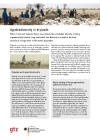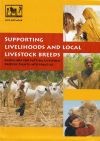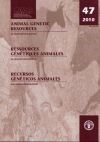Agrobiodiversity in drylands
“When it rains and drylands bloom, one realises the remarkable diversity of living organisms they harbour. Long overlooked, this diversity is crucial to the food security of a large share of the world’s population.” This information brief describes the importance of dryland agricultural biodiversity, outlines the threats facing it, and points to the key role that local people play in conserving it.

Download document


